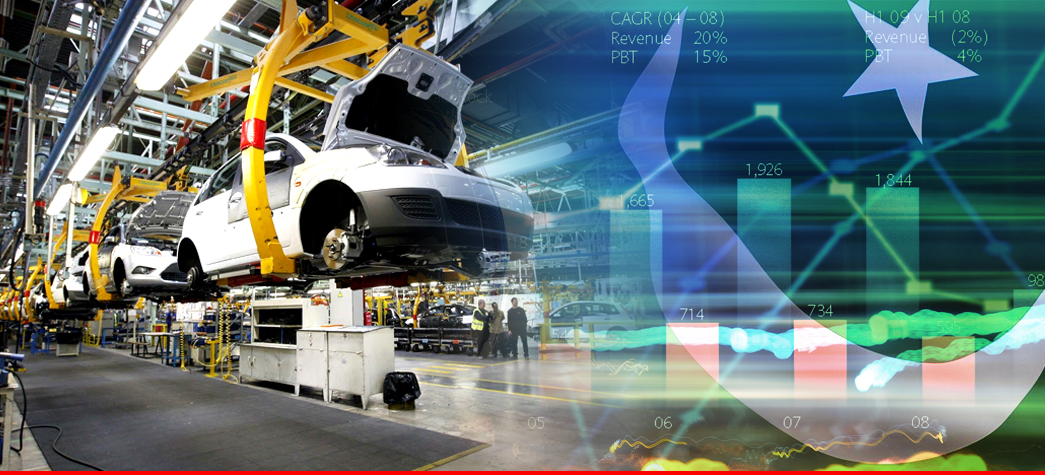The downward trend of automobile sales is expected to continue during the fiscal year 2019-20 and could leave almost 150,000 people jobless as a consequence.
The imposition of several high amounts of additional taxes on automobiles has left the auto industry tumbling. The government recently levied Federal Excise Duty (FED) on all types of locally assembled vehicles under three slab rates, i.e., 2.5%, 5% and 7.5% as per their engine capacities. Another duty named as Advanced Customs Duty (ACD) has been imposed at the rate of 5% by the government on all raw materials that have adversely affected the auto industry. The cost of manufacturing has increased significantly, thus resulting in higher prices of vehicles in the country. The devaluation of rupee against the US dollar has also played its part in forcing the auto manufacturers to jack up the prices. Consequently, the purchasing power of consumers has declined immensely hence affecting the sales of automobiles to a great extent. With the inventories piling up due to reduced orders, the auto manufacturers are forced into halting their production. This cycle of low sales is expected by the industry during the fiscal year 2019-20, which will eventually result in leaving as many as 150,000 people jobless in the country within just a year.
The auto industry was aiming to increase its sales to 0.3 million by 2021 and 0.5 million by the end of 2022, but under the current economic situation, it looks miles away. The cost of doing business has surged immensely, and rupee-dollar parity has decreased the car and LCV sales significantly over the last few months as compared to the last fiscal year. The market insiders have predicted that it’s not a short-term plunge in sales as it will decline even further in the coming days. The existing auto manufacturers have been forced to revise their manufacturing plans owing to the low sales. The new players are also hanging by a huge amount of uncertainty as the economic situation in the country is continuously deteriorating. It is regarded as an economic meltdown situation which has compelled auto giants like Honda Atlas and Toyota Indus to cut down their production.
Honda Atlas recently shut down its production plant for 10 days as its inventories had piled up to 2000 units. In the same way, Toyota Indus has decided to cut down its production for 2 days every week, which makes it 8 days every month. Pak Suzuki is the only Japanese auto manufacturer, which doesn’t seem to be affected by the current situation as it announced that the company has no plans to cut down its production. The booking orders for Pak Suzuki haven’t dropped yet, suggesting that the car sales trend for the company is maintaining its level. As a matter of fact, at some point, Pak Suzuki will also be forced to decrease its production and lay off employees.
The sluggish trend of car sales is posing a considerable challenge to the auto industry as said by Almas Hyder, one of the top manufacturers of auto parts in Pakistan. According to him, such a massive depreciation of the rupee was not anticipated by the industry. At the moment, the industry is clueless as the cost of manufacturing has escalated drastically.
On the other hand, the government should act sensibly and withdraw all the newly imposed taxes and duties in the budget 2019-20. The government’s aim to increase the tax collection can never be fulfilled under the current situation of plummeting car sales. Moreover, the automobile policies need to be implemented for longer periods with consistency to allow the existing and new players to plan their production accordingly. Unlike hatchbacks, the vehicles of 1300cc and above category have shown a great amount of drop in sales which has dented the auto industry. As a result, the vendors of auto parts have also reduced the working days and currently working on a single shift to meet the low demands. All of these are not good signs for the auto industry and must be looked into by the government as earliest. Auto industry plays a vital role in tax collection and hence should be allowed enough room to grow in an incentive-based environment.
What are your thoughts on the current situation of dipping car sales in the country? Stay connected with PakWheels for all the updates related to the automobile industry.


Taxes are necessary to successfully run a state. However, insanely high and impractical taxation can do more harm than good, you know excess of everything is bad! Pakistan is a country where consumers have to buy cars at the highest prices in the region, adding further taxes is only going to cut the demand particularly in small and medium sized vehicles. It may also discourage the new entrants to invest in the country which can negatively affect the national economy.